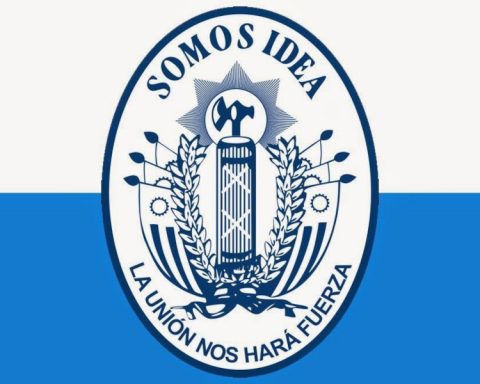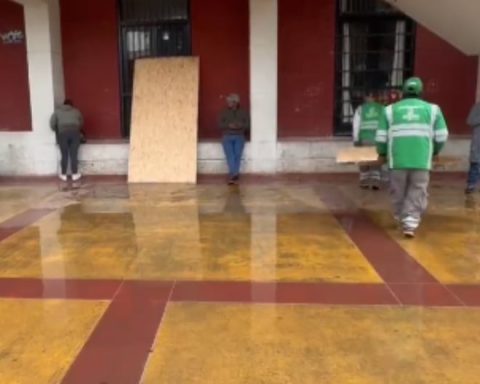In the midst of an environment of panic involving threats and cases of violence in the school environment, the Ministry of Justice and Public Security (MJSP) announced this Wednesday (12) the edition of a new ordinance with a series of obligations for network platforms social. According to Minister Flávio Dino, the norm signed by him brings “practical and concrete measures” to regulate the service provided by the sector, with a specific focus on preventing violence against schools. In recent weeks, there have been two attacks of this type and threats of attacks have spread throughout the country.
“For the first time we have a clear rule on how to combat conduct based on the accountability of companies, which, for years, said they were neutral and that, therefore, they were not responsible. And they are. What the ordinance states is that they are politically, socially and legally responsible. Because these companies are service providers, they select content that we view, they promote content, they influence, therefore, the content that circulates on the internet”, he said at a press conference to announce the measure.
The ordinance provides, for example, that the National Consumer Secretariat (Senacon), an agency of the Ministry of Justice, initiate administrative processes to determine the responsibility of each company in relation to the possible violation of what the minister called “duty of safety and caution” of platforms in relation to violent content against school communities. It is within the scope of these processes that the platforms must respond to various requests from the folder provided for in the norm, such as, for example, the obligation to present systemic risk assessment reports on the propagation of illicit content, information on the risk of access by children and adolescents to age-inappropriate content, in addition to content considered illegal, harmful and harmful, according to the ordinance.
Senacon may also request information about the risk of propagation and viralization of content and profiles that display violent extremism, encourage attacks on the school environment or support and incite these crimes or their perpetrators.
Failure to comply with the measures, according to Minister Flávio Dino, could result in the application of fines that can reach R$ 12 million or, in the most serious cases, even the administrative suspension of social networking services in the country.
“What we want is the adequacy of these services. But, the administrative process will be in place and, of course, if the rules dictated on violence against schools are not complied with, the administrative process will go ahead so that there is application of these sanctions, ranging from fines until, eventually, the suspension of activities”, highlighted Dino. Despite being edited in a context of crisis, the ordinance has an indefinite term.
Author identification
Another determination of the ordinance requires the sharing, between social networking platforms and police authorities, of data that allow the identification of the user or the terminal of the internet connection that the user made available the content considered violent against schools. This work will be coordinated by the National Secretariat for Public Security (Senasp), also linked to the MJSP.
Also according to the ordinance, Senasp may order platforms to prevent the creation of new profiles based on internet protocol addresses (IP address) in which illegal, harmful and dangerous activities have already been detected.
Also according to the ordinance, Senasp will establish a database of illegal content, containing links, images, videos, among others, with the aim of facilitating identification by the automated systems of the platforms, so that they are quickly removed.
The ordinance does not determine specific deadlines for removal, but the Minister of Justice said that a maximum period of two hours should be adopted as a standard, the same used by the Electoral Justice, during the 2022 elections, for the removal of illegal content on social networks.
Concern
The decision to regulate social networks through a ministerial decree, and not a law, raised concerns from specialists and civil society organizations, despite the emergency situation involving acts and threats of violence in schools. The broad regulation of social networks itself is currently under discussion in the National Congress, and is defended by the current government, which presented suggestions for Bill 2,630/2020 just last month.
“The State should indeed look at this issue of schools with the urgency it deserves, but it seems worrying to me that, in the midst of this regulatory discussion process in Congress, a single federal government department adopts an ordinance that provides for very tough measures, as the possibility of sanctions with blocking of the service”, points out journalist and researcher Bia Barbosa, representative of the third sector on the Internet Management Committee (CGI.br) and member of the collective DiraCom – Right to Communication and Democracy.
For Bia Barbosa, the biggest problem is the choice of legal regulatory instrument. “Today we have a government committed to democracy, but if we change the context, an authoritarian government could use this type of instrument with serious threats to democracy”, she ponders. According to the researcher, the ideal would have been the involvement of other bodies, including the Judiciary itself, which should be responsible for removal orders. “I think this would be a task for the Attorney General’s Office for the Defense of the Democratic State of Law, from the Advocacy General of the Union, which could trigger the Justice to give removal orders in a very short period, without being a unilateral administrative act and without a determined period”.
The researcher also argues that Brazil should create, like the European Union – cited by Flávio Dino as a regulatory reference -, a body with legal attribution to guide platforms in the context of content moderation. “In a context of crisis like this one, a regulatory body could adopt exceptional measures to define and moderate content, in a given context and time frame, but not the government on duty. Executive Power because it understands that this causes an excessive risk to the exercise of freedom of expression”, he observes.
The proposal for regulating social networking platforms presented by the government provides for the creation of an independent supervisory authority, along the lines of other international experiences.
school rounds
This Tuesday (11), Minister Flávio Dino signed a notice of public call to expand the school safety program. In all, R$ 150 million will be invested with resources from the National Public Security Fund (FNSP). State and municipal security secretariats, or equivalent, will be able to present projects in six different thematic areas.
Channels
Complaints about threats of attacks can be made to the Escola Segura channel, created by the Ministry of Justice and Public Security, in partnership with SaferNet Brasil. The information sent to the channel will be kept confidential and there is no identification of the complainant.
Access the website to make a complaint.
In case of emergency, it is advisable to call 190 or the nearest police station.
* Matter amended to clarify that the current government only submitted suggestions to Bill 2.630/2020, and not the bill itself, as previously reported.
















